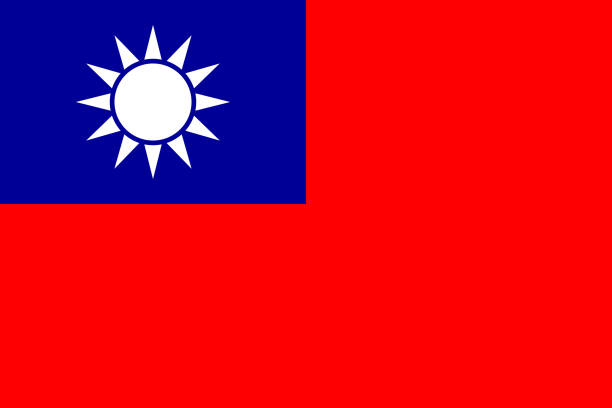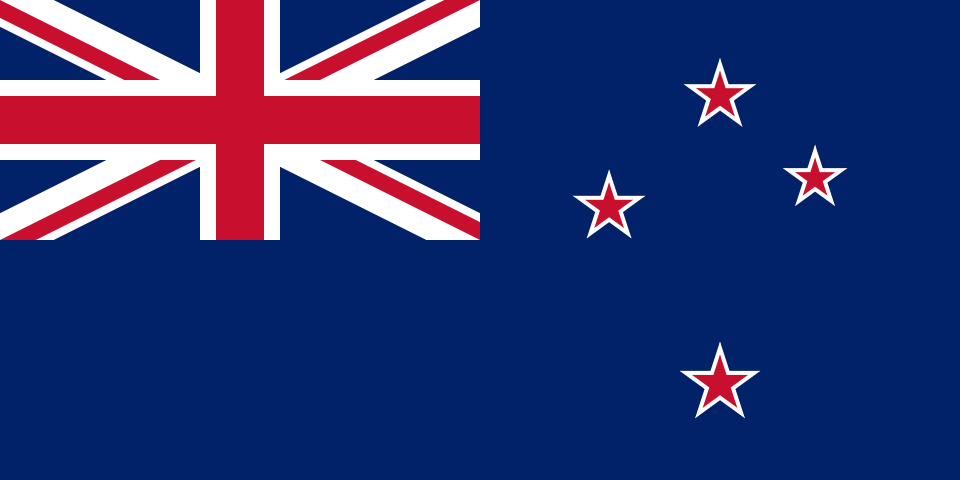Introduction
Vietnam continues to attract foreign companies looking to expand in Asia. With a growing economy and a young workforce, the country is becoming a focus for international hiring.
As of 2025, economic growth has remained steady, and Vietnam’s labor laws have evolved to support both employers and employees. Companies entering the market are expected to comply with local employment regulations, including contracts, payroll, and social contributions.
This guide provides current and accurate information about hiring in Vietnam, based on labor trends, government policies, and workforce data. It is intended for businesses unfamiliar with Vietnam’s employment landscape.
Vietnamese Labor Market Overview
Vietnam’s labor market in 2025 is shaped by a young population, rising education levels, and structural shifts in the economy. The country is transitioning from labor-intensive manufacturing to more knowledge-based and service-oriented industries.
Urban areas such as Ho Chi Minh City and Hanoi continue to attract job seekers, while secondary cities like Da Nang and Hai Phong are emerging as alternative hubs. The labor supply is concentrated in manufacturing, services, and technology sectors.
Foreign companies are hiring in sectors such as electronics, logistics, fintech, and software development. Labor costs remain competitive compared to neighboring countries.
Key statistics in Vietnam’s labor market include:
- Workforce size: Over 52 million people with a 76% participation rate
- Growing industries: Manufacturing, technology, financial services, and renewable energy
- Education levels: Improving, with higher English proficiency in urban areas
- Salary ranges: Vary by region, with higher wages in major cities
Legal Requirements For Foreign Hiring
The Labor Code 2019 remains the primary legal framework for employment in Vietnam. This code outlines contract types, working hours, wages, and termination procedures that apply to both local and foreign employers.
Foreign companies hiring in Vietnam must submit their labor needs to the Department of Labor, Invalids and Social Affairs (DOLISA). When hiring foreign nationals, employers must prove that qualified Vietnamese candidates aren’t available for the position.
Employment contracts must be written in Vietnamese and include job title, salary, working conditions, and contract duration. Contracts for foreign employees may include an English translation, but the Vietnamese version is legally binding.
Recent updates to labor regulations have set the maximum duration for fixed-term contracts at 36 months, with probation periods limited to 60 days for most roles.
EOR Or Local Entity: Choosing Your Approach
Foreign companies have two main options when hiring in Vietnam: establishing a local entity or working with an Employer of Record (EOR).
Setting up a local entity involves registering a business, opening a bank account, and obtaining necessary licenses. This process typically takes 2-4 months and requires coordination with multiple government departments. Once established, the company is responsible for all employment compliance.
Using an EOR service like Team APAC allows companies to hire in Vietnam without creating a legal entity. The EOR becomes the official employer and handles contracts, payroll, benefits, and compliance requirements. This approach reduces setup time to about 1-2 weeks.
Each option suits different business needs:
- Local entity works best for: Long-term operations, direct market presence, larger teams
- EOR works best for: Quick market entry, testing the market, smaller teams
The main differences between these approaches involve setup time, costs, and compliance responsibilities. Local entities give companies more control but require greater investment and ongoing management. EOR services offer faster deployment with reduced administrative burden.
Recruitment And Onboarding Steps
Hiring employees in Vietnam follows a structured process that aligns with local labor laws.
First, define the role requirements clearly, including responsibilities, qualifications, and skills. Job descriptions should be written in Vietnamese and include details about working hours, location, and reporting structure.
When hiring foreign employees, submit a labor demand report to DOLISA at least 30 days before recruitment. For Vietnamese employees, post job openings through government employment centers, online job boards like VietnamWorks, or social media platforms.
Interviews in Vietnam tend to be formal and structured. Begin with relationship-building questions before moving to technical assessments. Selection typically considers qualifications, experience, and cultural fit.
After selecting a candidate, prepare a written employment contract in Vietnamese. This contract must include mandatory elements such as job title, workplace, salary in Vietnamese dong, working hours, and termination conditions.
Once the contract is signed, register the employee with tax authorities and social security. Collect necessary personal documents and provide workplace orientation, including company policies and procedures.
Work Permits For Foreign Employees
Foreign employees working in Vietnam require proper authorization through work permits or exemptions.
Work permits are mandatory for most foreign nationals working in Vietnam for more than 30 days. Applications are submitted to DOLISA in the province where the employee will work.
Required documents include:
- Completed application form
- Passport copy
- Health certificate
- Criminal background check
- Proof of qualifications
- Evidence of work experience
Documents from outside Vietnam must be legalized and translated into Vietnamese. Preparation typically takes 3-4 weeks, and processing time is about 5-15 working days.
Some foreign employees qualify for work permit exemptions, including:
- Company owners or capital contributors
- Internal transfers within a corporate group
- Short-term workers (under 30 days)
- Experts working under government agreements
Work permits are valid for up to 24 months and can be renewed once. After that, a new application is required for continued employment.
Payroll And Social Security
Vietnam’s payroll system includes various taxes and social contributions that both employers and employees must pay.
The country uses a region-based minimum wage system with four tiers based on location. As of 2025, these range from VND 3,450,000 to VND 4,960,000 per month.
Employer contributions include:
- Social insurance: 17.5% of salary
- Health insurance: 3% of salary
- Unemployment insurance: 1% of salary (for Vietnamese employees)
Employee contributions are withheld from their salary:
- Social insurance: 8% of salary
- Health insurance: 1.5% of salary
- Unemployment insurance: 1% of salary (for Vietnamese employees)
- Personal income tax: Progressive rates from 5-35%
Monthly reports and payments are submitted through government portals. Deadlines vary by contribution type, but most are due by the end of each month. Companies must keep payroll records for at least five years.
Employment Contracts And Benefits
Employment contracts in Vietnam come in three main types:
- Indefinite-term (no end date)
- Fixed-term (up to 36 months)
- Seasonal or task-based (less than 12 months)
All contracts must be written in Vietnamese, though bilingual versions are common. They must be signed before the employee starts work.
Required contract elements include:
- Names and addresses of both parties
- Job description
- Workplace location
- Salary and payment details
- Working hours
- Insurance participation
- Termination conditions
Vietnamese law mandates certain benefits for all employees:
- Paid annual leave (minimum 12 days)
- Social, health, and unemployment insurance
- Sick leave and maternity leave
- Public holidays
Many employers offer additional benefits to attract talent:
- 13th-month salary (Tet bonus)
- Private health insurance
- Meal and transportation allowances
- Flexible work arrangements
Termination requires proper notice periods (3-45 days depending on contract type) and may include severance pay of half a month’s salary for each year of service.
Cultural Insights For Workplace Success
Understanding Vietnamese workplace culture helps foreign companies build effective teams.
Vietnamese work culture values hierarchy, group harmony, and relationship building. Employees often respect authority and may be hesitant to express disagreement directly, especially in group settings.
Communication tends to be indirect, with meaning conveyed through context, tone, and body language rather than explicit statements. Building trust through regular, informal interactions supports stronger workplace relationships.
Effective management approaches include:
- Clear task delegation with specific expectations
- Regular check-ins and feedback
- Showing interest in employee well-being
- Recognizing achievements appropriately
Recognition works best when personalized and delivered thoughtfully. Public praise may cause discomfort for some employees, while private acknowledgment or small group recognition is often more effective.
Common retention challenges include limited career growth opportunities, competitive urban job markets, and increasing expectations for work flexibility. Companies can address these by offering clear promotion paths, ongoing training, and balanced work arrangements.
Working With Team APAC
Building a compliant team in Vietnam involves following both legal requirements and cultural practices. This dual focus helps companies avoid regulatory issues while creating a positive work environment.
Team APAC simplifies this process by combining legal expertise with cultural understanding. Their Employer of Record service handles employment contracts, work permits, payroll, and social contributions, allowing companies to focus on their core business.
For companies hiring in Vietnam, Team APAC offers:
- Compliant employment contracts in Vietnamese
- Work permit processing for foreign employees
- Accurate payroll calculations and contributions
- Guidance on local workplace norms and expectations
This approach reduces compliance risks while supporting effective team management. Companies can enter the Vietnamese market quickly without establishing a legal entity or developing in-house expertise.
For personalized guidance on hiring in Vietnam, contact Team APAC through their website.
FAQs About Hiring In Vietnam
What are the minimum wage requirements in Vietnam?
Vietnam uses a four-tier minimum wage system based on location. As of 2025, Region I (major cities) requires VND 4,960,000 monthly, while Region IV (rural areas) requires VND 3,450,000 monthly. Foreign companies must follow these rates based on where employees work, not where the company is headquartered.
How long does the work permit application process take?
The work permit process typically takes 15-30 working days after submission. Document preparation, including legalization and translation, may add 3-4 weeks to the timeline. Companies often start the process 6-8 weeks before the employee’s planned start date to account for potential delays.
Can foreign companies hire contractors instead of employees?
Foreign companies can hire contractors in Vietnam, but must ensure the relationship doesn’t resemble employment. True contractors work independently, set their own schedules, and aren’t subject to company policies. Misclassifying employees as contractors can result in penalties and back payments for taxes and insurance.
What are the termination procedures for employees?
Termination in Vietnam requires written notice (3-45 days depending on contract type) and must follow legal grounds such as contract expiration, performance issues, or company restructuring. Employees who worked at least 12 months may receive severance pay of half a month’s salary per year of service, unless terminated for misconduct.
How do labor inspections work for foreign companies?
Labor inspections are conducted by DOLISA and may be scheduled or unannounced. Inspectors review employment contracts, payroll records, social insurance payments, and work permits. Companies should maintain accurate, up-to-date records and be prepared to provide documentation promptly when requested.
Ready to Hire in Vietnam?









